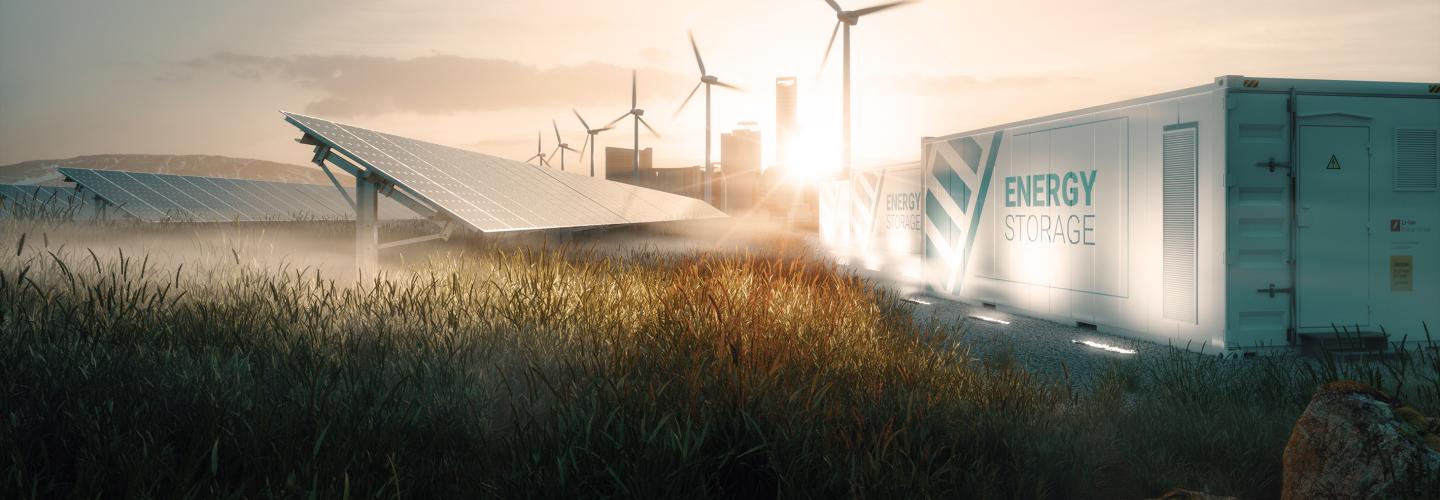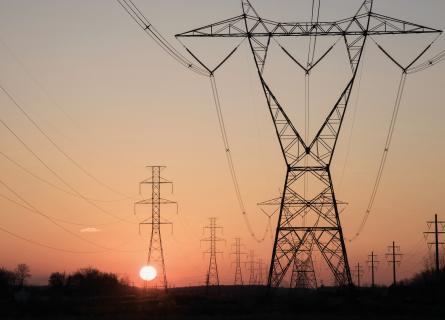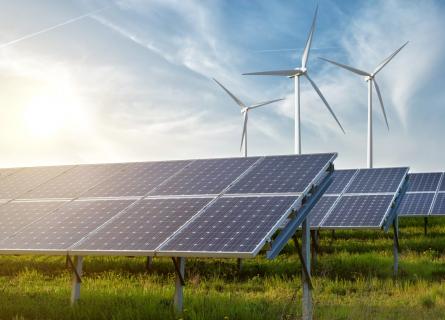
A brighter future with power from the sun
Reshaping the energy industry
Solar energy is key for a more sustainable future. By harnessing the sun's energy, we can provide clean and affordable electricity – amongst others, in developing countries where this is needed for further economic growth. In general, renewable energy sources are reshaping the energy industry. They are the way of the future for supporting the decarbonisation of all sectors of the economy.
At AFRY, we believe that solar has a vital role to play to decarbonise the power supply. It has gained immense popularity over the past few years due to its clear advantages. Solar plants offer greater flexibility in terms of location compared to wind projects. They can generate power even in areas with diffused radiation thanks to their highly efficient solar modules. This adaptability is evident in satellite technology, where solar modules are employed due to their ability to harness solar radiation regardless of location. The primary constraint is the necessity to receive solar radiations, which determines the viability of utilising solar modules in various locations.
Recent years have seen decisive technological development that has made solar photovoltaic (PV) modules become highly efficient. Furthermore, the installation costs have been steadily declining, making it an increasingly affordable option for both large-scale, utility- and home-based systems.
The demand for solar energy is projected to surge by over 53% this year. The Chinese market is expected to lead the way followed by the United States, India and Brazil. In Europe we also foresee further growth, striving to become more independent for its energy supply from other regions.

How to increase the reliability of solar power?
However, installing solar power projects doesn’t come without challenges. Firstly, despite tremendous cost reductions in recent years, the cost of solar panels and equipment remains high. Secondly, the availability of suitable land and grid connectivity can be a significant obstacle, particularly in densely populated areas. For this reason, floating solar is more and more considered as a viable alternative. Thirdly, varying government policies, regulations and incentives can create uncertainty and slow down the adoption of solar energy.
Next to these challenges, the intermittent nature of solar energy poses a key technical challenge that impacts the economic viability of the project. Solar power generation is highly dependent on daily and seasonal cycles and has short-term variability and intermittency. This feature does not perfectly match the standard load profiles of typical household electricity consumption which usually has the highest energy demands in the mornings, evenings and weekends.
Given these technical challenges, how can we best increase the security and reliability of solar power?
Ensuring a better business case and making it more attractive for investors.
Our approach to flexible operation of solar power
At AFRY, we apply a four-pillar approach for the flexible operation of solar power to react to the uncertain electricity supply.

Choosing the optimal scale of your solar project, based on the accurate balance of supply and demand, is a key success factor in making it efficient, profitable and reliable. AFRY’s solar experts use the most up-to-date toolbox to find the optimal solution, whether it is a large-scale or a small-scale project, and with any technology (PV or solar thermal) and suited for any type of location (ground mounted, floating, rooftop etc.).
The energy mix of solar power with other energy sources like wind, hydro or thermal is a win-win for stabilising the overall electricity output. We have the multi-disciplinary expertise needed to cover every well-known or innovative solution to implement solar power into existing power generation systems. We have supported our clients in creating greenfield projects with the optimal mix of energy resources, as well as integrating newer solar projects into the existing power grid.
Undoubtedly, Battery Energy Storage Systems (BESS) are the keystone to providing a reliable and consistent supply of energy from renewable sources. The more reliable and predictable the power outflow, the less is the need for fossil fuel backup power. Current global trends show an increase in BESS installations, with the price of batteries and Balance of System (BoS) equipment decreasing with scale.
Furthermore, solar energy can be converted into another, more reliable source of energy – ‘Green Hydrogen' for example. At AFRY, we have made several studies showing that hydrogen generated from solar power is undoubtedly a beneficial and strategic low-carbon solution to reach a high reliability of energy supply.

Why AFRY?
AFRY has been active in the solar energy sector for around 20 years, providing services in more than 50 countries worldwide. The dedicated team of solar experts serve clients throughout the entire value chain and project lifecycle and have delivered more than 400 projects with a total installed capacity of over 32 GW. We provide technical, commercial and market-based studies and services.
We see solar as part of an integrated solution leading to stable energy output. Whatever technical challenges are to be faced, our commitment to being at the forefront of the energy transition remains more vital than ever. We are committed to providing state-of-the-art engineering, design and consulting solutions to address global challenges and combat climate change.
Our experts support leading private and public institutions in developing market analysis, policies, regulation, tendering, asset-related engineering and environmental studies, and operational performance optimisation. We contribute to advancing both photovoltaic and thermal sources of solar energy. Our solar activities are on a global scale and capture the insight of all stakeholders needed to run this pivotal renewable energy source at a higher level.
At AFRY, we believe that shaping the future with solar energy is not only possible but also an opportunity to overcome challenges. With our extensive expertise in solar project development and implementation, we are confident in our ability to predict and cover the majority of technical risks associated with such projects. Instead of questioning which energy resource to use, we focus on how to most efficiently harness the inexhaustible energy of the sun. Let's embrace this challenge and work towards a more sustainable future together.
Somesh Shah, Manager, International Solar Business.
To make an effective energy transition, it is important to adopt an integrated approach to electricity supply. This supply needs to be predictable and controllable, while renewable sources (depending on weather conditions) are not. Integrating different kinds of renewables, combining them with storage solutions, and/or converting them to other (controllable) energy sources is essential.
Peter Plug, Vice President, Global Head of Renewable Energy.






